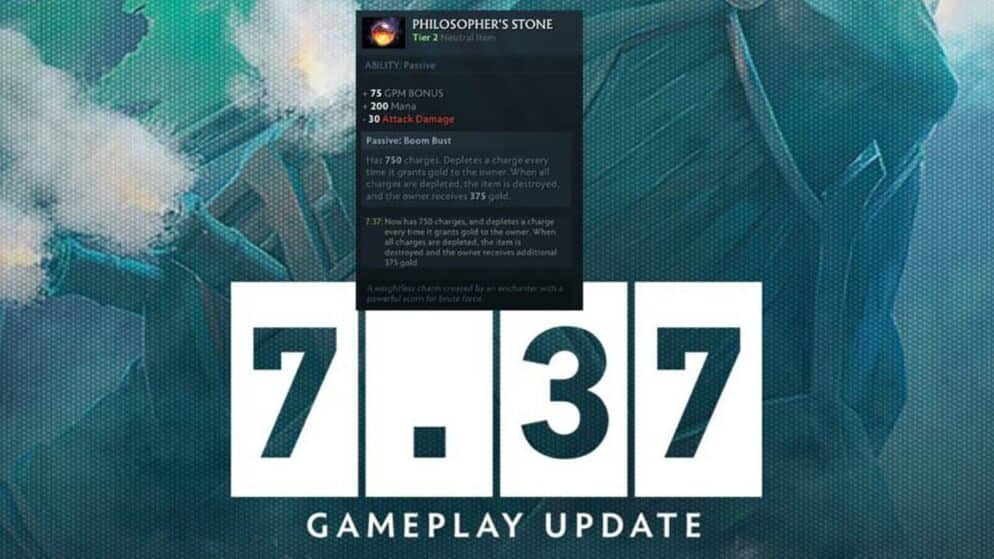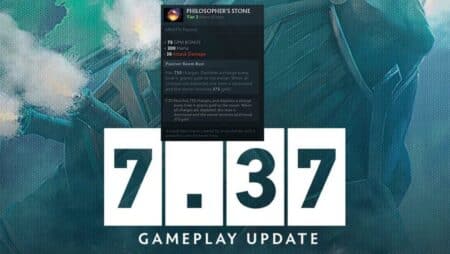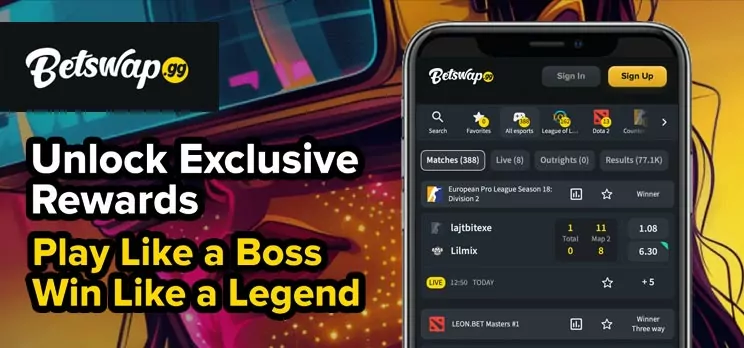

Dota 2 7.37 Philosopher's Stone
Playing a support role in Dota 2 is a challenging endeavor. It demands a player to prioritize the development of their teammates, known as the cores, over their own. While this sacrifice is crucial for the team's overall success, it often means the support player does not fully tap into their own hero's potential.
In the context of Dota 2, the Philosopher's Stone has historically provided a steady income for support players, aiding them in this selfless task. However, with the release of patch 7.37, this critical item has undergone significant changes that impact its effectiveness, presenting new challenges for support players.
What changed in the Philosopher’s Stone?
The Philosopher’s Stone now possesses 750 charges, depleting one charge each time it grants gold to the owner. Once all charges are exhausted, the item is destroyed, and the owner gains an additional 375 gold.
Previously, the Philosopher’s Stone had an indefinite lifespan, providing continuous passive gold income. The significant update now necessitates that users manage the item based on its limited charges. As each charge is used up, support players can expect a consistent gold gain throughout the game, eliminating the need for constant micromanagement.
A noteworthy impact of this change is the reduced necessity for supports to juggle the Philosopher’s Stone with other neutral items. With its automatic destruction after 750 charges, there is no longer a dilemma about whether to prioritize the Philosopher’s Stone or other useful tier-three items. This shift simplifies inventory management during critical moments in the game.
Another notable aspect is the strategic shift in gameplay dynamics, especially for support roles. Previously, there was a need to switch back to the Philosopher’s Stone during periods of non-combat to maximize gold income. Now, the item’s fixed charges allow players to focus more on game strategies rather than item management.
Overall, the new approach to managing the Philosopher’s Stone aligns with a streamlined gameplay experience, benefitting support players by ensuring a predictable gold income and freeing up inventory space for other game-essential items.
Mixed Community Reactions
The recent changes to Philosopher’s Stone in Dota 2 have created a split among the community of players. With the introduction of a 750 charge limit before the Stone is destroyed, one faction argues that this diminishes their ability to continuously equip the item for prolonged income. Contrarily, some players see this as a beneficial move.
A detailed Reddit discussion reveals differing sentiments. Reddit user supermopman appreciates the update, noting the reduction in the need to frequently manage their backpack. They express relief, stating, „I'm so glad I don't have to micro my backpack so much. I think this is great.“ This viewpoint suggests that the change simplifies gameplay, reducing the micromanagement of low-tier items, which was seen as tedious by some.
Another user, Fen_, echoes this opinion, emphasizing that the update prevents players from clinging to lesser items in the later stages of the game. „It's a great change (as is the Shovel one). You shouldn't be holding onto low-tier Neutral items deep into the game. It incentivized unfun micro of minor items.“ This perspective highlights the broader game design philosophy potentially motivating Valve’s decision, aiming for a more streamlined and engaging late-game experience.
The introduction of the charge limit also removes the 200 Mana pool bonus offered by the Philosopher’s Stone, a significant point of contention. Legiyon54 points out the scarcity of neutral items providing such a boost, which is particularly advantageous for Intelligence-based support heroes. This aspect of the change has led to some dissatisfaction among those who rely heavily on the additional mana for strategic advantages.
In summary, the modification to the Philosopher’s Stone underscores the broader gameplay changes ushered in by the Dota 2 7.37 patch update. While it brings about a more simplified item management system, the debate within the community reflects the diverse priorities and strategies among different player types.
















